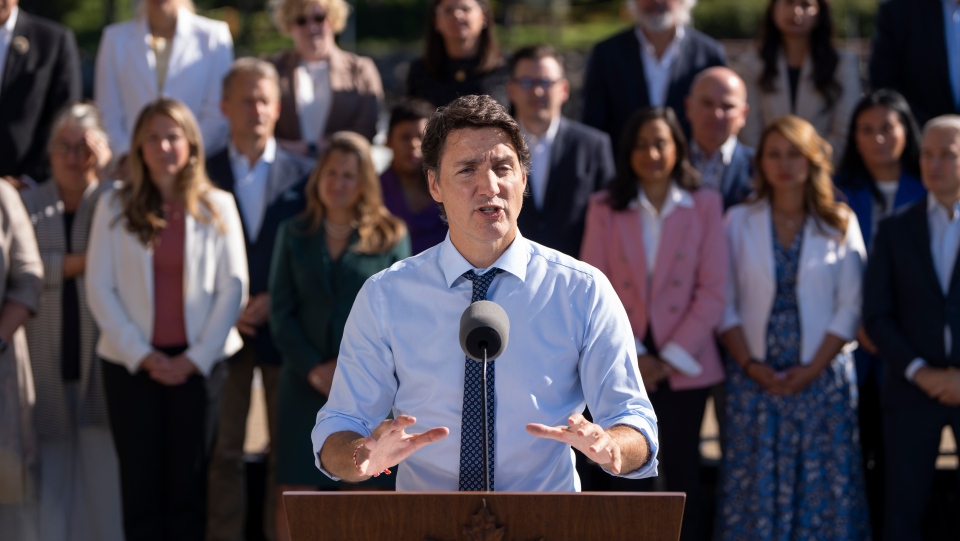
Canadian Prime Minister Justin Trudeau Announces His Resignation
After nearly a decade as Canada’s prime minister, Justin Trudeau announced on Monday that he will resign as leader of the Liberal Party, marking the end of an era defined by bold policies and divisive debates.
Speaking from his Rideau Cottage residence, Trudeau reflected on his time in office, saying he had “fought for this country” and its people, CNN first reported.
“Every morning I’ve woken up as prime minister, I have been inspired by the resilience, generosity, and determination of Canadians,” he said. “I have fought for this country, for you.”
Trudeau’s tenure, which began in 2015, was characterized by sweeping initiatives, including his government’s response to the COVID-19 pandemic, strong support for Ukraine, and climate change policies.
“We rallied to support each other through the pandemic, stood strong with Ukraine and democracy, and worked to prepare our economy for the future,” he noted.
His resignation follows mounting internal tensions and declining popularity within the Liberal Party. Trudeau acknowledged these challenges, stating, “I intend to resign as party leader and prime minister after the party selects its next leader through a robust, nationwide, competitive process.” He emphasized the need for fresh leadership, saying, “This country deserves a real choice in the next election, and if I’m having to fight internal battles, I cannot be the best option to lead that fight.”
What to know
Trudeau expressed regret over his unfulfilled promise to reform Canada’s electoral system, calling it his “one regret” as prime minister.
“I wish we had been able to change the way we elect our governments so that people could choose a second or third option on the same ballot,” he said, referencing his 2015 campaign pledge to move away from the first-past-the-post system.
· The announcement comes amid political turmoil within the Liberal Party, further inflamed by U.S. President-elect Donald Trump’s proposal to impose 25% tariffs on Canadian goods.
· Deputy Prime Minister Chrystia Freeland resigned last month, citing differences over the government’s approach to U.S.-Canada relations, adding to the pressure on Trudeau.
· With Canada’s next general election set for October, Trudeau’s departure underscores the Liberals’ need to rebuild and re-strategize.
· His popularity, once a driving force behind the party’s success, has significantly declined, leaving the party facing an uncertain future.
Despite the challenges, Trudeau remained optimistic about Canada’s path forward. “We are at a critical moment in the world,” he said. “Canada’s strength lies in its people, and I have no doubt we will rise to meet whatever comes next.”
As Trudeau steps aside, the Liberal Party faces the task of selecting new leadership to navigate the evolving political landscape.
Credit: https://nairametrics.com/
NB: The images and/or content, except where otherwise indicated, are taken directly from the web, if some images or content were inserted by mistake violating the copyright, please contact the administrator for immediate removal.
We publish all content with good intentions. If you own this content & believe your copyright was violated or infringed, please contact us for immediate removal.
